Levelling up: The seaside town debating what change is needed
- Published
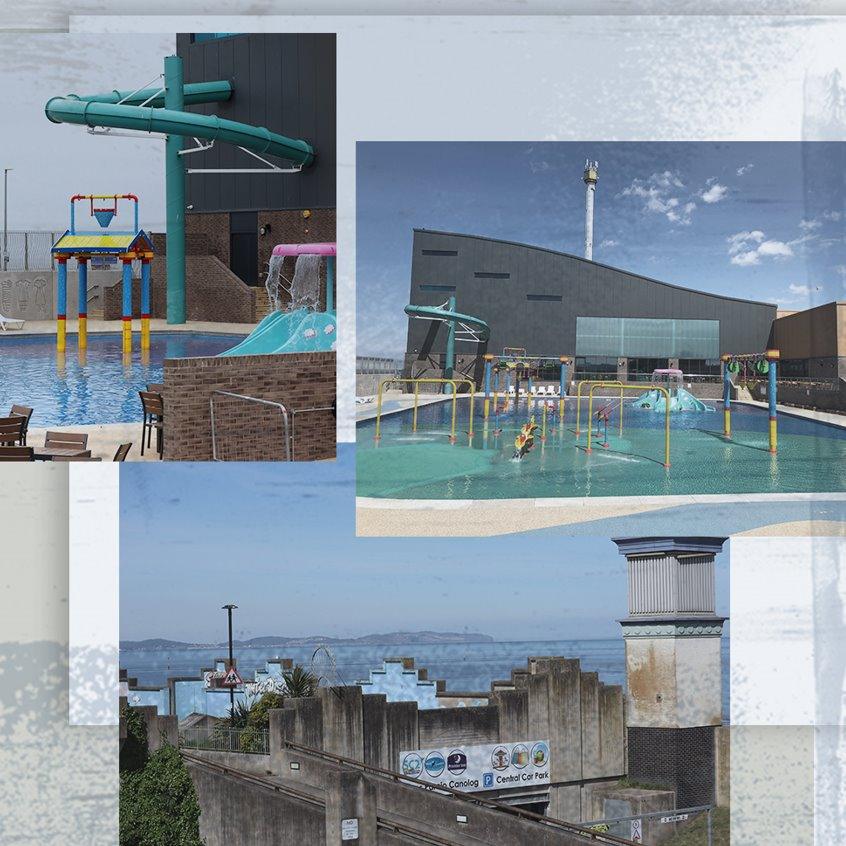
Unless ministers rethink the detail of plans to reduce regional inequality and "level up" Britain, the scheme could fail whole communities, says a charity.
The Salvation Army says thousands of lives could be harmed if the plans do not embrace the needs of residents.
BBC News is following the fortunes of the levelling up agenda in the seaside town of Rhyl, which has the two poorest neighbourhoods in Wales.
Rhyl is one of dozens of British towns eligible for a share of the £4.8bn levelling up fund under the UK government's flagship policy to reduce regional inequality.
A separate, huge spending programme has already transformed Rhyl's seafront.
But some locals question how the money is being spent and ask who benefits from the changes.
Whose pool?
"Things are looking really bright for Rhyl," says Jamie Groves, managing director of council-owned Denbighshire Leisure Ltd.
Behind him lies a vast expanse of sandy beach and a sparkling sea.
"Rhyl had decades of promises and master plans, decades of all these visions and not one person delivered them," says Mr Groves, who grew up locally.
Levelling up: Lessons from Rhyl on how to use the money
A stroll on the prom reveals new bars, restaurants and hotels, plus the revamped Victorian Pavilion theatre where Welsh icon Tom Jones will perform in September.
More than £120m from Denbighshire County Council, the Welsh government and the EU has helped transform the ageing promenade which fell into disrepair when the tourists spurned "Sunny Rhyl" in favour of sangria on the Costa del Sol.
The vision is for high quality facilities and the jewel in the crown, the SC2 waterpark, is fully booked for the summer - but some locals feel priced out.
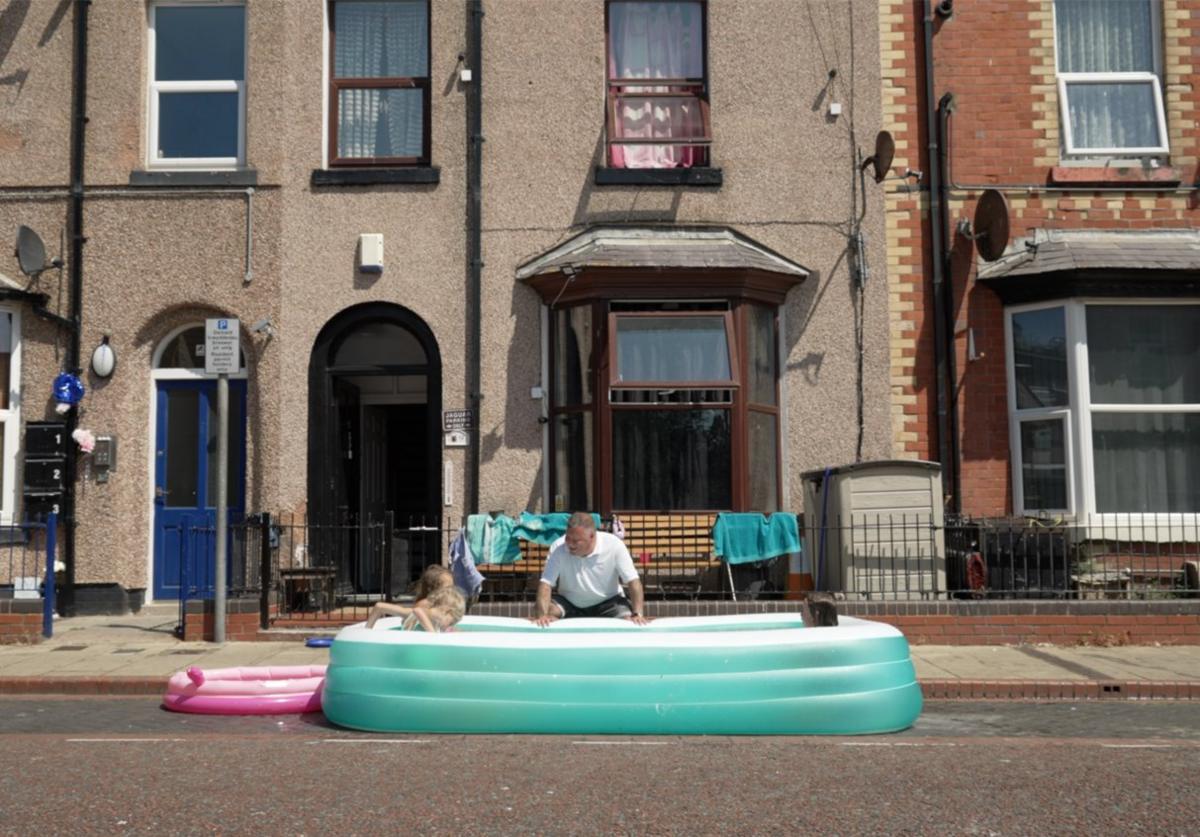
A few streets away, Peter Saunders watches three of his 12 children play in a paddling pool he inflated and plonked in a parking bay outside his house.
Like many residents who spoke to the BBC, he bemoans the loss of the free paddling pool that once stood on the site now occupied by SC2.
It costs £48 for two-and-a-half hours in the waterpark for a family of four, although there are sometimes concessions.
For Peter, who says the town has many large families like his, the waterpark "just costs too much money... It's not right really, not for the people of Rhyl."
"In an ideal world most visitor attractions would be cheaper," Mr Groves admits, but he adds: "We've got to strike a balance between affordability and viability."
"We actually think this presents really good value for money," he says, pointing out that the waterpark employs local people.
A world away
It would probably take one of the town's many seagulls less than a minute to fly from the Good News Mission to the seafront in search of chips to scavenge - but it feels a world away.
"People need to come three or four streets back and see where the poverty is," says Natasha Harper, an outreach worker based at the former church which helps about 100 families a week.
"We had one family who were sleeping on the floor for quite a while because they couldn't afford beds."
She wants the people making decisions about the town to visit "for 10 minutes... and maybe the money wouldn't be trying to make the front look pretty but actually put into where it's needed."
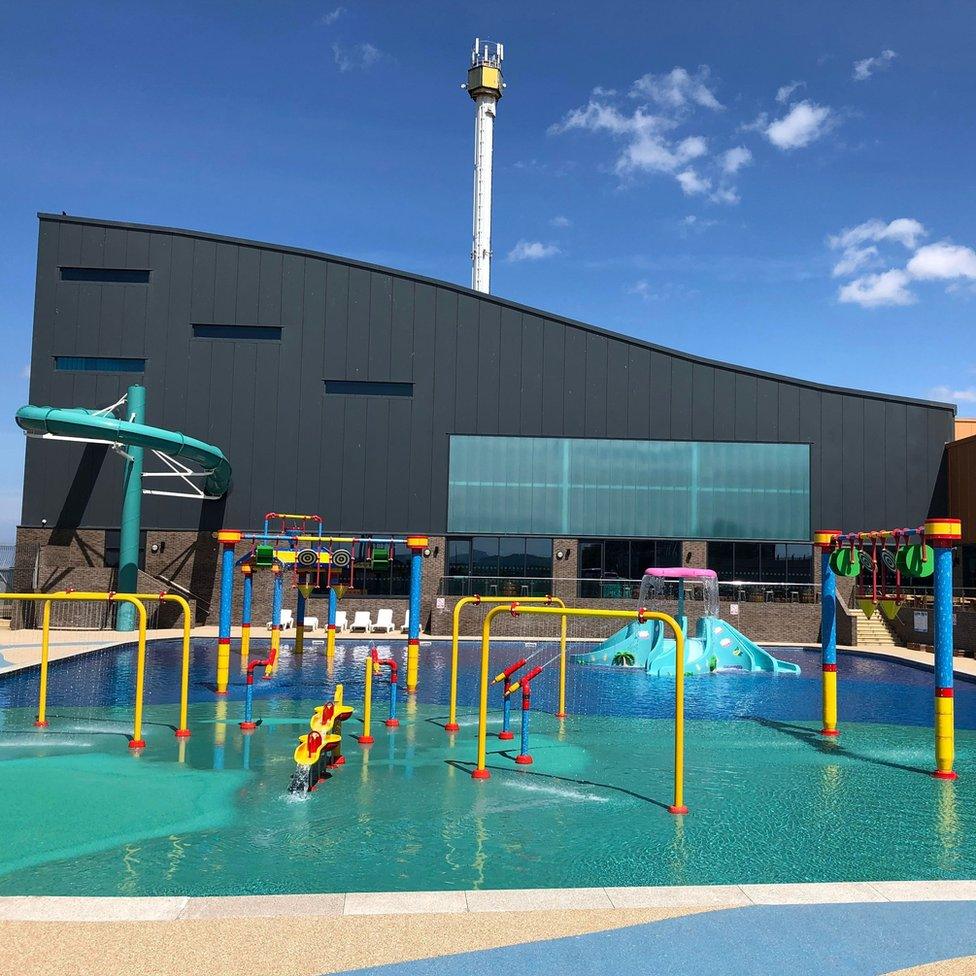
The SC2 waterpark - a landmark attraction, but beyond the pocket of some in Rhyl
The difference of opinion over the waterpark highlights national tensions over how to transform the fortunes of some of our poorest communities.
The Salvation Army says coastal areas in particular are "in dire need" but its report, published on Wednesday, highlights a lack of consultation.
"We want to encourage the government to listen to the communities who need their help, look up from the spreadsheet and see what we are seeing on the ground," says Rebecca Keating, the charity's director of employment services.
Post-pandemic jobs
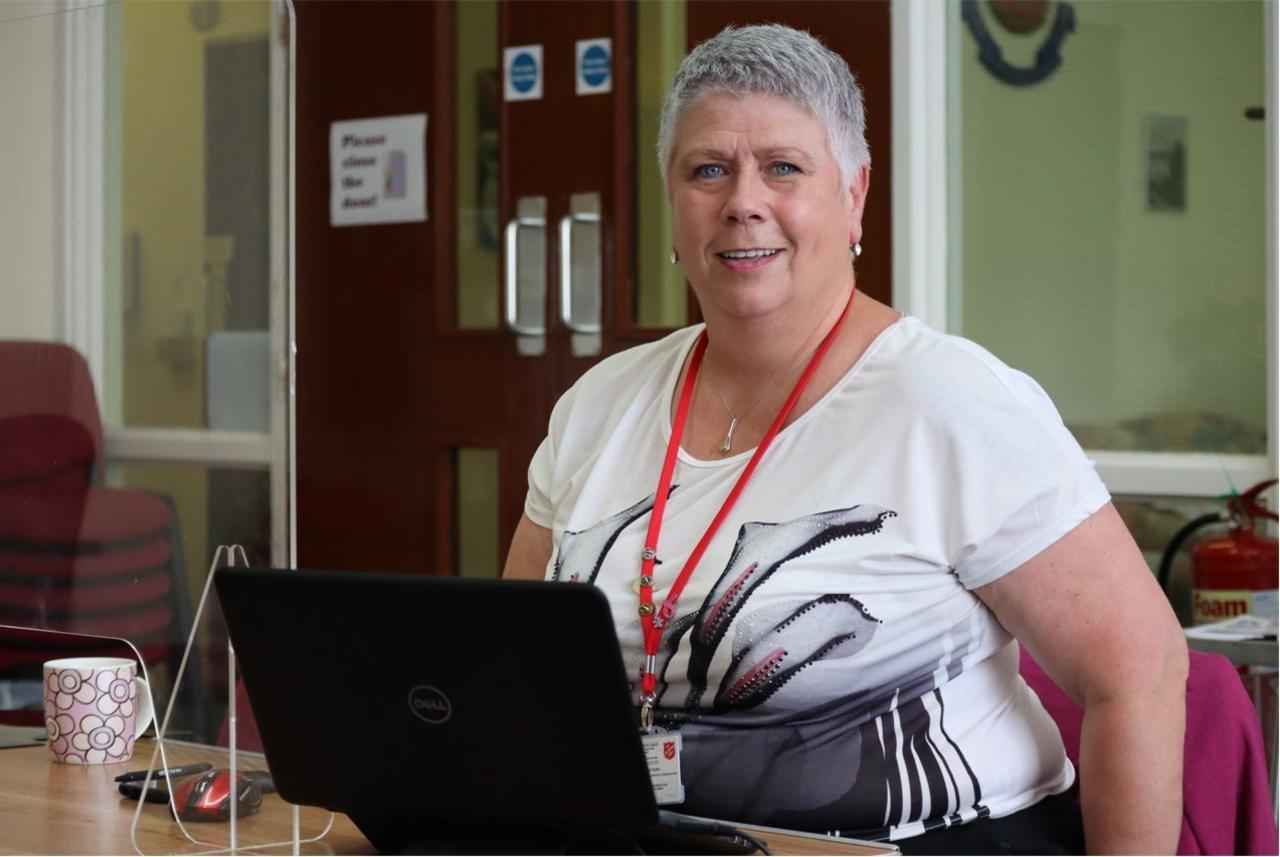
Tourism jobs were an early casualty of the pandemic, says Suzi Taylor
"The pandemic has been devastating for the area in general," says Suzi Taylor, an employment development co-ordinator with the Salvation Army in Rhyl.
"In an instant the tourism stopped. The jobs which people rely on were in one fell swoop gone."
The number of people claiming unemployment benefits in the resort rose sharply.
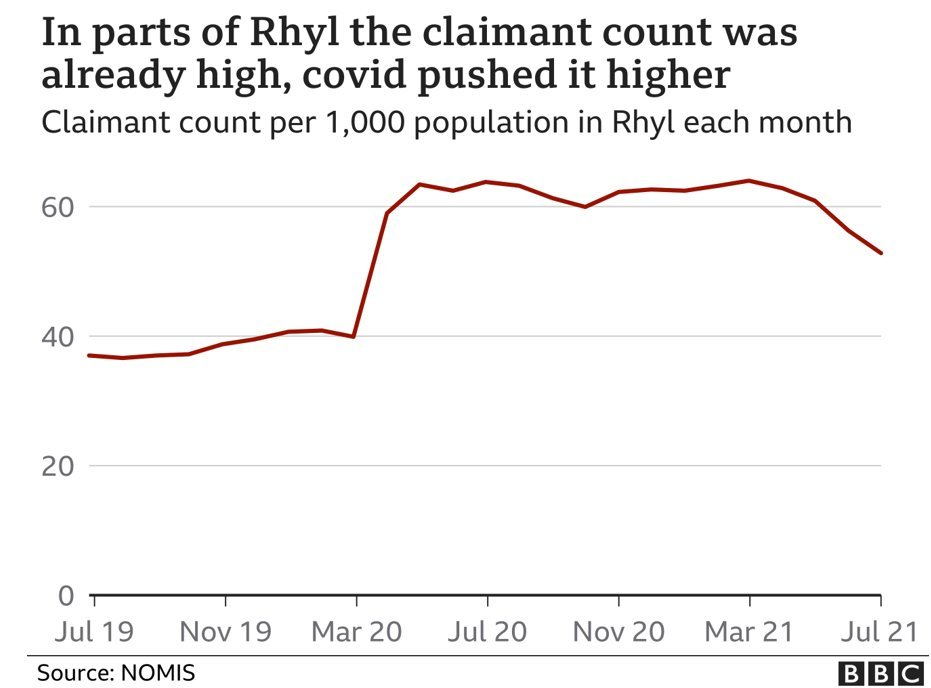
This includes not just people who lost their jobs but also those whose earnings fell low enough to be eligible to claim.
Denver Jeff dislikes relying on hand-outs but looking for a job during successive lockdowns was tough.
The 64-year-old former labourer says it was "impossible for me because I didn't have internet, the libraries were shut so I couldn't use their tablets, the job centre was shut".
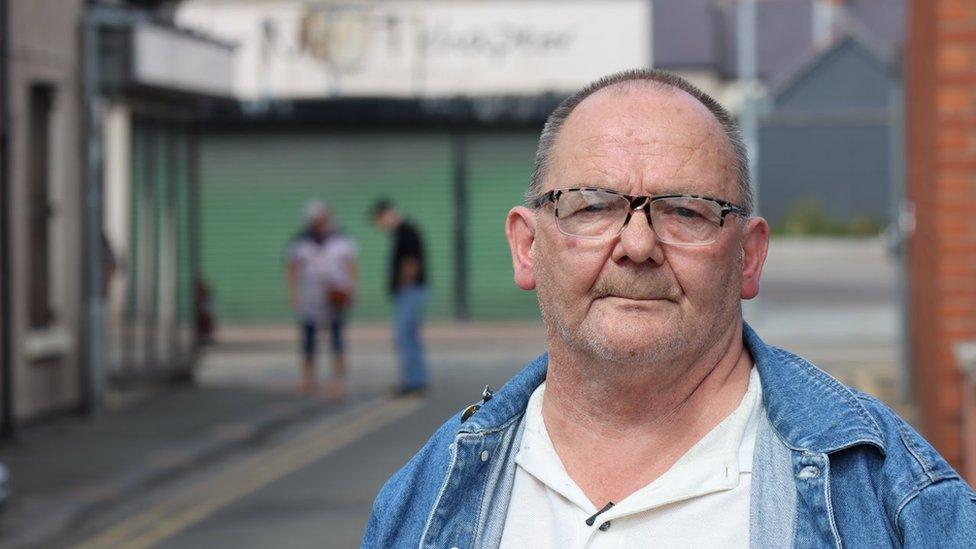
Denver Jeff started a new job as a cleaner on Monday
The Salvation Army helped him find a part-time job as a cleaner at a local supermarket.
Suzi says any attempt to level up Rhyl must start with better skills training for the many local people on short-term or zero-hour contracts.
A lot of local jobs "just don't give the financial security that people need to be able to move on and see there's more to life than benefits".
'A good place'
In a statement, the Ministry of Housing, Communities and Local Government said levelling up would encompass "all areas of the country, with billions of pounds of investment to support and regenerate communities, including coastal areas".
Officials will take into account "productivity, unemployment and skills" when identifying areas most in need of support, the spokesperson added.
Denbighshire County Council's leader, Hugh Evans, says he understands how locals have felt neglected in efforts to change the town: "but we had to start somewhere".
"The challenge is marrying up the level of investment to the benefit of the people in the more deprived areas."
He says money has been invested in improving schools and housing and hopes the levelling up funds will improve Rhyl's decaying town centre.
"The vision is quite clear: It's about a good place to live, a good place to visit and a good place to work."
Additional reporting by Michael Buchanan.

TIME TRAVEL WITH TUDUR: The funniest of moments from the last half century of Welsh telly
THE CASABLANCA: How a Cardiff nightclub changed our lives

- Published3 August 2021

- Published15 March 2024
